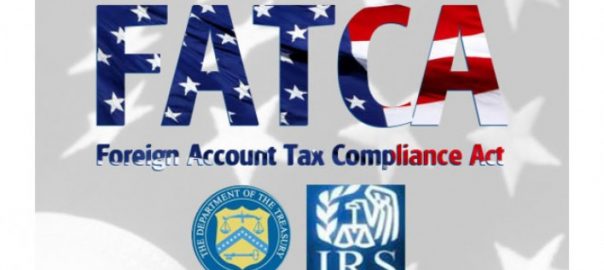The Facts About FATCA
 Many Americans, who are significant real estate investors, have holdings in different states in the USA and may even have real estate that they own in foreign countries.
Many Americans, who are significant real estate investors, have holdings in different states in the USA and may even have real estate that they own in foreign countries.
Owning real estate abroad is an effective strategy to capture the advantages of the differences in global markets. There are currency advantages as well as tax structures that differ depending on the local laws.
Unfortunately, America is one of the few countries in the world that taxes its citizen on income earned, no matter where it is earned in the world. However, there are some terrific tax exemptions. For example, an American living abroad for more than six months each year can receive a salary of up to US$175,000 tax-free if paid by a U.S. company. There are also significant tax deductions available to American citizens working for a U.S. company, but living abroad.
Foreign Account Tax Compliance Act
During 2010, the Foreign Account Tax Compliance Act (FATCA) came into effect. FATCA requires any U.S. citizen to report the ownership and/or control of any foreign bank account, land holdings, or business interests that are in excess of US$2,000.
There has been significant effort to close down tax loopholes by the U.S. government and attack tax avoidance schemes in so-called “tax havens.” There is the equivalent of U.S. billions of dollars at stake that is sought by tax authorities from the United States, England, and countries from the E.U. where the tax rates are significant.
Occasionally, the FATCA rules are triggered by unusual circumstances. An example of this would be if a family member lives in a foreign country and they die naming an American citizen as the heir to their estate. Suddenly, that American owns property in a foreign country and has to pay U.S. tax for having it.
Tax Fraud vs. Tax Avoidance
There is a difference between criminal tax fraud and legal tax avoidance. Doing everything that is legally permitted to reduce the U.S. tax burden is permissible. Breaking the law to hide assets and income is not.
The line between the two things is not always clear. For example, many persons held ownership of foreign assets in the name of a Panamanian trust. Under Panamanian law, the owners of a trust are not required to be disclosed. This meant that essentially, any person could easily set up a Panamanian trust to hold the ownership of any foreign assets. This system seemed to be legit, so thousands of Americans and Europeans created Panamanian trusts to hold the title to any foreign assets they owned.
A leak of inside information from the largest law firm in Panama that was creating these trusts caused massive IRS actions against Americans under the FATCA rules. No longer is the information about ownership kept private in Panama. In fact, Panama signed the FATCA agreement with the U.S. and is now routinely going to forward all the information it has about Americans to the IRS in the USA.
Summary
It is great to diversify your real estate portfolio and to own properties in more than one country. Just be sure to follow the FACTA rules and report to the IRS any holdings you have worldwide. And, no matter how irritating it is, pay your taxes.